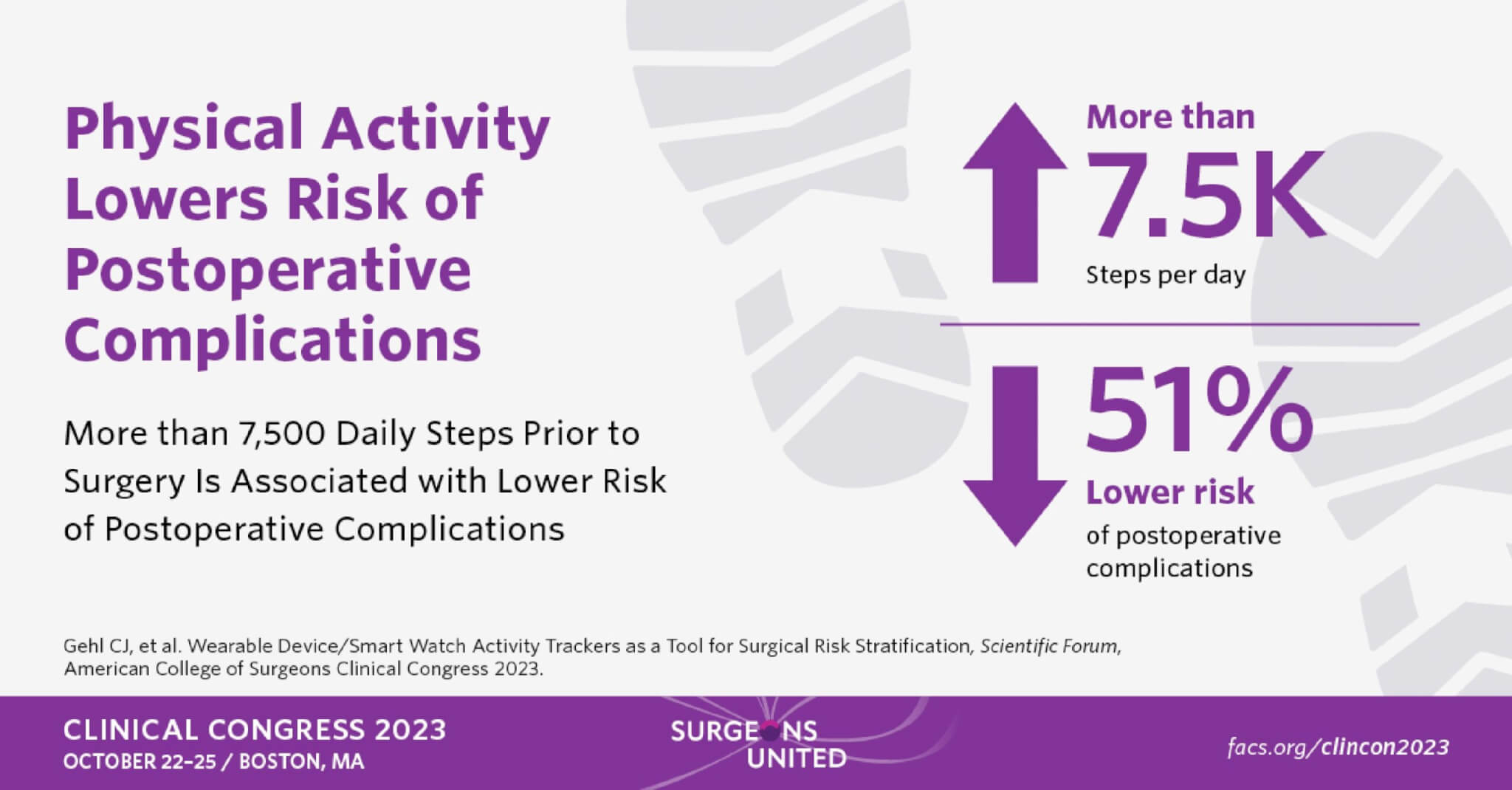CHICAGO — Patients who take more than 7,500 steps daily prior to surgery can cut the risk of postoperative complications in half, a new study reveals.
Utilizing data from Fitbit activity trackers, the study aimed to pinpoint individuals potentially at a higher risk of complications post-surgery. The research finds that taking fewer daily steps correlated with an increased rate of postoperative complications. However, the likelihood of complications within the first 90 days post-discharge decreased by over half (51%) for those who averaged more than 7,500 daily steps before surgery. This finding was consistent even after accounting for the complexity of the surgical procedures and other contributing factors.
Historically, approximately 30 percent of patients experience postoperative complications, with about half of these issues arising after a patient’s hospital discharge.
“Fitbits and other wearable devices could potentially be linked to Electronic Health Records (EHRs) and have that data be something that surgeons consider when planning perioperative care for their patients,” says the lead author of the study, Carson Gehl, a second-year medical student at the Medical College of Wisconsin in Milwaukee, in a media release.
Gehl believes that such integration holds the potential to significantly improve patient outcomes post-surgery.

This research involved analyzing health metrics from 475 individuals who used a Fitbit device to track their daily steps. The team believes theirs is the first study to investigate the correlation between physical activity, as measured by Fitbit, and complications within 90 days post-surgery.
“We used the combination of EHRs and Fitbit data to uncover how to potentially improve surgical outcomes,” Gehl elaborates. “In our study, we looked at how many steps patients recorded on any given day, which is a proxy for physical activity.”
The study author adds that their analysis wasn’t restricted to just the days leading up to surgery. The activity data spanned from as short as six months to several years prior to surgery, offering insights into patients’ long-term physical activity habits.
The study participants, averaging 57 years of age, underwent various surgical procedures, from general to orthopedic and neurosurgery. Notably, about 12.6 percent encountered complications within the first 90 days post-surgery. The research also highlights that patients who took over 7,500 steps daily before surgery had 45 percent fewer complications within the initial 30 days post-surgery compared to those recording fewer steps. After adjusting for various factors, the odds dropped even further to 51 percent.
“If we find people who are at high risk, using these Fitbit tools, we could monitor them more closely following their procedure because that allows us to catch problems before they progress beyond control,” Gehl emphasizes. “Another goal of our research is to modify physical activity in the preoperative period and improve postoperative outcomes. We need more studies and evidence to answer that question.”
The findings are due to be presented at the American College of Surgeons (ACS) annual Clinical Congress in Boston, Massachusetts.
You might also be interested in:
- Best Fitness Trackers For 2023: Top 5 Wearable Tech Devices Recommended By Experts
- Forget 10,000, just 4,000 steps a day linked to a longer life
- Best Medical Schools Of 2023: Top 5 Universities Most Recommended By Experts
- High-intensity exercise before surgery can cut post-op complication risks in half
South West News Service writer Stephen Beech contributed to this report.

Lea la versión en español en EstudioRevela.com: ¿Vas a someterte a una cirugía? Realizar 7,500 pasos antes reduce significativamente el riesgo de complicaciones.
